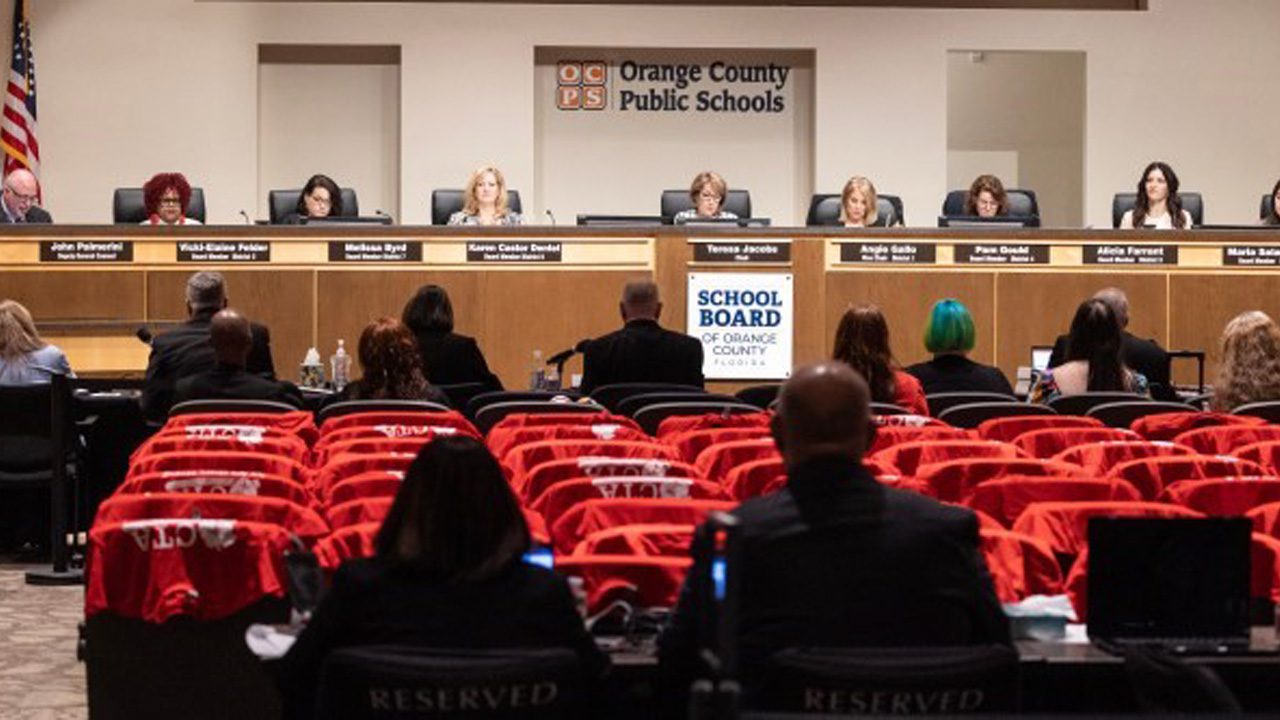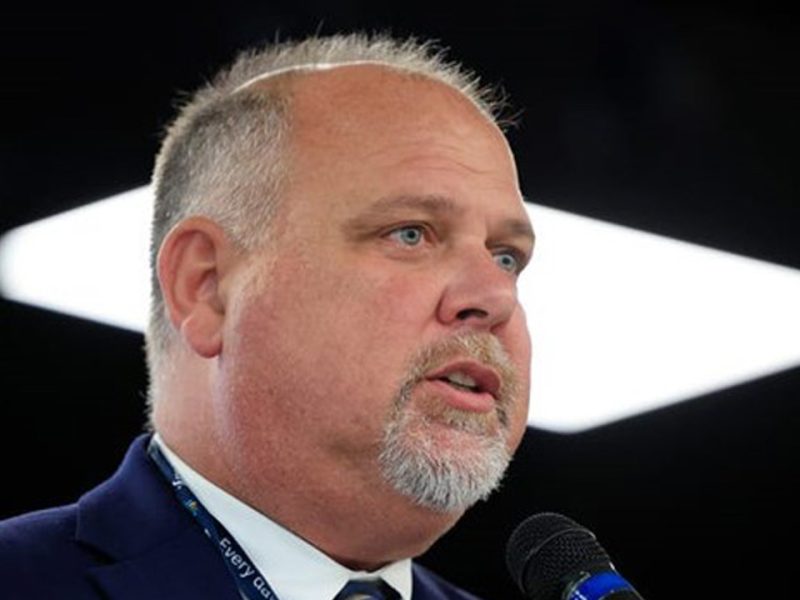
Orange County teachers OK contract, will get nearly 10% raises next week
Bad feelings remain, however, as labor dispute took months to resolve
Orange County Public Schools teachers overwhelmingly ratified a new contract that gives most of them nearly 10% raises but also hikes their insurance costs in the coming years, according to a vote announced Tuesday.
More than 99% of teachers who voted by mail-in ballot said “yes” to the new contract, ending a months-long labor dispute between the teachers union and Central Florida’s largest school district.
Now that it has passed, OCPS teachers will get raises starting April 10, with about 90% getting pay hikes of 9.7%. Next week’s paycheck also will include a lump sum of back pay as the salary hikes are retroactive to the start of the current school year.
Starting teacher pay in the district will go to $49,375, up from $48,400.
The teachers union president called the salary hikes, which will provide an average yearly raise of $5,400, are “one of the great wins of the year.”
But Clinton McCracken said hard feelings remain after comments made last week by Teresa Jacobs, chair of the Orange County School Board, and the district’s chief of staff at the State Board of Education meeting. Asked to explain why OCPS teachers weren’t getting raises — which the Legislature allocated money for — until nine months into the school year, both blamed the union for the drawn-out negotiations.
That prompted anti-union comments from state board members, all appointees of Gov. Ron DeSantis, and then complaints from the statewide teachers union and the local union that the board had unfairly “vilified” teachers and the unions who represent them.
McCracken, a veteran teacher and now president of the Orange County Classroom Teachers Association, said the district’s insistence on steep hikes to employee insurance premiums — which it says are needed to afford the raises in the face of “surging” health care costs — was the hold up in negotiations that started in late June and did not wrap until early March.
The insurance increases, once in place, will cost employees who need to cover spouses or children from $683 to $3,459 more a year, depending on which plan they select. Newly hired teachers will face even steeper premiums than those already on staff.
“The district and the board have lost their way with the truth,” McCracken said. “We made multiple attempts to get them to consider an alternative” to insurance hikes, he said.
Jacobs, however, said Tuesday “the union never budged from their original position,” even as the district agreed to bigger raises to meet union demands. Union leaders also did not say that a one-year “discount” on insurance increases was needed to break the logjam until both sides were assembled at an impasse hearing on March 5.
“I am really disappointed,” she said. “Whatever the strategy was, it kept our teachers from getting raises for a very long time.”
Last month, during an impasse hearing the union and the district agreed that the full insurance increases would be delayed until the 2025-26 school year, with the district paying $4.4 million to defray those those costs in the 2024-25 school year, so employees do not pay as much initially.
The two sides had already agreed on raises for teachers, with the union thrilled the district approved percentage pay hikes, rather than a flat amount as they have been in recent years. The percentage raises will benefit veteran teachers, who saw their wages stall when DeSantis pushed to raise starting teacher pay and required most state money to go to that effort.
OCPS called the raises “historic” and urged teachers to accept the deal.
“It is exciting to see our teachers decisively voted to ratify their contract,” said Superintendent Maria Vazquez in an emailed statement after the ballots were counted. “With this vote, our hard-working teachers have guaranteed their well-deserved raises.”
At the state board meeting, Jacobs said she was frustrated negotiations took so long, saying it was “unconscionable” that teachers waited so many months for their money.
OCPS moved money from reserves to afford the raises, Jacobs said, a move made because it values its teaching staff.
She said the union could have sped up negotiations by skipping a hearing before a special magistrate, for example, as that process added 120 days to the process.
Rob Bixler, the district’s chief of staff, agreed the union “did not move from their offer” during negotiations. “It was very frustrating,” he said.
“Hearing that the teacher’s union didn’t even bother to counter offer until very recently that’s the definition of unconscionable in my mind,” said state board member Ryan Petty, after the OCPS officials spoke. “I find the whole process just disgusting.”
OCPS was one of three districts that had to explain to the state why money earmarked for raises hadn’t yet been paid to teachers.
“I think oftentimes the unions are bringing in other issues,” said Education Commissioner Manny Diaz during the discussion, adding that maybe the Legislature could consider ways to speed up the process. “The dollars are there and they’re not getting into teachers’ pockets, and that’s really the frustrating part about this.”
McCracken, who watched the board meeting online, said he was stunned that Jacobs and Bixler blamed the union and failed to note that insurance costs were the issue.
“The salary proposals weren’t the hold up. It was the insurance,” he said.
And he said the union tried more than 15 times, via emails, calls and suggestions made at meetings, to get OCPS to look at alternatives but was rebuffed until the impasse hearing in March.
In December, to be sure the union was doing what teachers wanted, it also sent surveys to OCPS’ 14,000 teachers, seeking input on the negotiations. The survey went to all teachers, not just union members, McCracken said.
The “overwhelming majority” wanted the union to “keep up the fight” because of worries about the proposed hikes to insurance plans, he said.
A video clip of Jacobs and Bixler speaking at the board meeting posted on the union’s Facebook page drew angry comments from some teachers.
“OCPS do you not have any shame?” read one.
“Our teachers are mad,” McCracken said. They viewed the comments as a way to “drive a wedge between the union and its teachers,” he said. “The union is its teachers.”
The Florida Education Association agreed.
“Teachers and education staff are tired of being vilified, demonized and condescended to for simply doing their jobs —- insults made worse when they come from a body made up of Gov. DeSantis’ rubber stamps,” it said in a statement released after the state board’s meeting.
Just over half of OCPS’ teachers voted on the new contract, with 7,123 ballots mailing in ballots. According to OCPS, 7,047 teachers voted “yes,” 35 voted “no” and 41 ballots were deemed “spoiled” and not counted.





